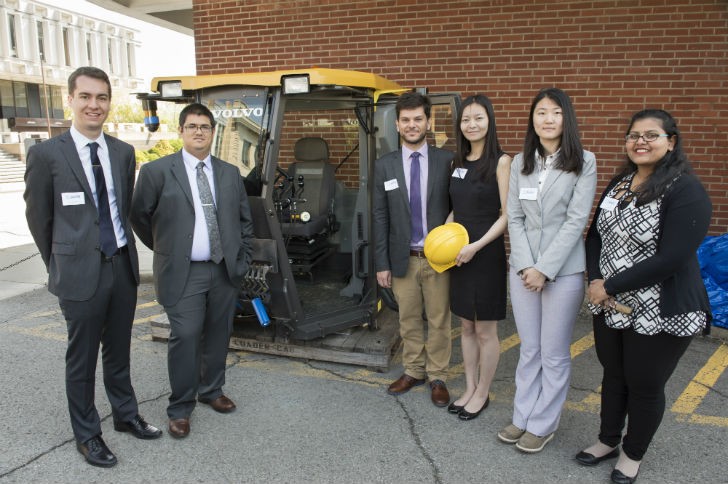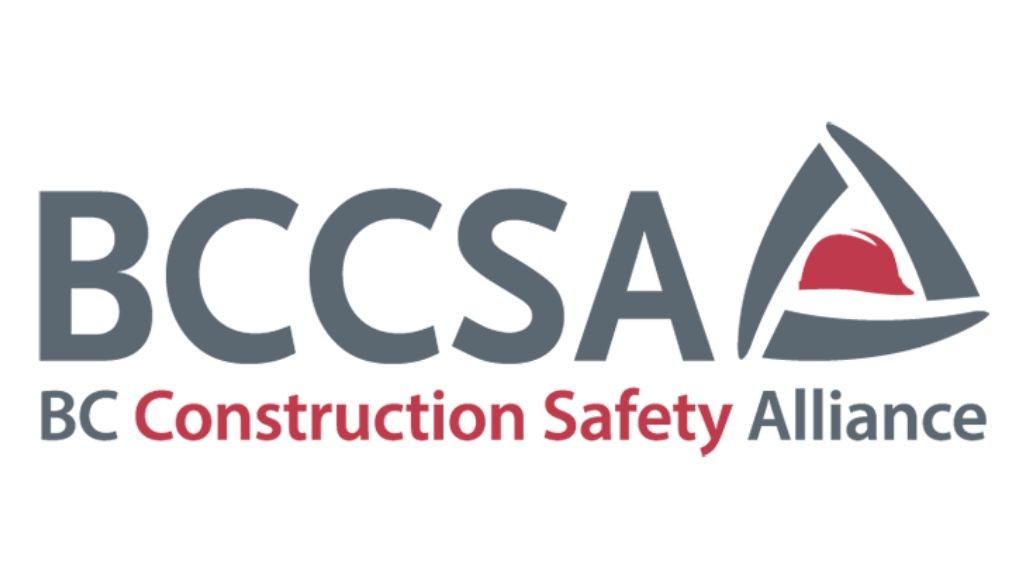
Volvo Construction Equipment has a long-standing tradition of partnering with universities worldwide on groundbreaking research. Two current partnerships, with Stanford University and Carnegie Mellon University, are exploring emerging technologies to create a future fleet of innovative construction equipment.
The construction industry is constantly evolving, always changing and adapting with the world. Volvo Construction Equipment’s (Volvo CE) philosophy is to embrace this change and shape its own future instead of letting the future shape the company.
“You can’t ask someone else to tell you what the future will look like, you need to create it yourself,” said Jenny Elfsberg, director of emerging technologies at Volvo CE. “At Volvo CE, we work together with partners, customers, competitors and academia to do just that.”
While the company has always had a long-standing tradition of partnering with outside sources, in 2009 Volvo CE intensified its dedication to academia by creating an organization solely responsible for university collaboration and the development of emerging technologies. Currently, Volvo CE is working on 30 different partnership projects with university students and professors. While many of them are based in Volvo’s home country of Sweden, there are also ongoing projects in Germany, Korea and the United States.
The university partnerships help Volvo CE embrace three paradigm shifts taking place within the construction industry and provide quality equipment for the future.
“Volvo has a lot of competency within the company, but it’s built among the products we have. With the constant innovations in technology, we need new engineering skills within a variety of areas,” Elfsberg said. “By partnering with academia we get new ideas from open-minded students and highly competent professors who are studying the newest and most promising research in the areas.”
Looking ahead
While Volvo CE specialists are familiar with machine’s systems and are knowledgeable in maximizing efficiency, the open-mindedness and fresh insight of engineering students will help the company as the industry places more emphasis on loss prevention with decoupling systems and moves towards electric-powered machines.
Volvo CE has already embraced the shift toward smart technology by integrating intelligent guidance into machines to minimize workload and increase safety, but working with universities allows the company to directly interact with people studying the latest and greatest innovations. This also means access to talent that could help integrate these innovations into valuable assets for the machines.
As the industry business model undergoes a revolution – going beyond selling standalone equipment – Volvo CE is adapting to offer a complete package from equipment and aftermarket supplies to service. Programs like Carnegie Mellon’s Integrated Innovation Institute, which combines engineering, design and business backgrounds into product development, help develop product engineers who understand this new world and could help create new business models with customers’ needs in mind.
While Volvo CE has different projects going on at universities all over the world, the collaborations with University of Oklahoma, Stanford University and Carnegie Mellon University are very unique to the company. Below is a description of each partnership project.
University of Oklahoma – Real-time density mapping
Volvo CE’s new Density Direct intelligent compaction system, which offers the industry’s first real-time density mapping technology, is the result of a decade-long partnership with the University of Oklahoma’s School of Electrical Engineering.
“Volvo has been a fantastic partner; not only have they provided insight into the market and equipment, but they’ve also helped us with filing patents,” said Dr. Sesh Commuri, the Gerald Tuma Presidential Professor at the University of Oklahoma’s School of Electrical Engineering. “Thanks to the partnership, we were able to develop, test and make commercial products that require a lot more capability than what the university has.”
The technology, which was unveiled in February at the World of Asphalt, is an intelligent asphalt compaction analyzer that estimates the density of asphalt pavement in real time. Within the Density Direct
system is a calibration screen, where the user sets the asphalt mix information for the project. Once fully calibrated with data specific to the application, the Volvo Intelligent Compaction with Density Direct system produces a density calculation that is accurate to within 1.5 percent of core sampling, providing a real-time reading of density values over 100 percent of the mat.
“For Volvo, the partnership was great because it gave us access to multidisciplinary expertise and skills,” Dr. Beainy said.
Beyond the horizon
While the partnership with the University of Oklahoma resulted in an actual product, the two research projects with Stanford University and Carnegie Mellon University are future-focused, exploring emerging possibilities that aren’t focused on within Volvo CE.
“Normally we at least know the approximate product we are looking for, and have some answers to the technical questions,” Elfsberg explained. “With the Stanford and Carnegie Mellon students we have asked more questions than we have given information.”
Stanford University – Solutions for an urban population
For the past three years, Volvo CE has partnered with Stanford University’s Mechanical Engineering Global course. Together, graduate students in Stanford professor Larry Leifer’s class work alongside students from a similar course at Sweden’s Blekinge Institute of Technology, to help Volvo CE develop solutions in the area of Urban Mining – a term used to describe a sustainable approach to construction and deconstruction in city landscapes.
“Student engagement with companies is absolutely vital to the delivery of top quality learning experiences,” Dr. Leifer explained. “While faculty deliver the theory, companies are able to deliver the practice. Stanford's ME310-Global is the Formula-1 version of the 'Product-Based-Learning model.'”
The partnership resulted in the students designing a compact concrete planer that could address potential urbanization problems for the construction industry. The concept design takes into account the construction laborers’ strenuous daily activities and the environmental impact of urban deconstruction.
The compact concrete planer breaks up the concrete in sizes that are best suited for recycling, and can be hooked up to a vacuum to eliminate dust particles from getting into the air. In addition, the compact concrete planer is remotely controlled to minimize heavy work, and also has the ability to eventually be made completely autonomous.
“These students are pursuing master’s degrees in sustainable product-service system innovation, so this project allowed them to get a lot of real life experience in solving actual problems,” Dr. Beainy said. “It’s also very beneficial for Volvo to be a part of this project and help create innovation for products and customers.”
Carnegie Mellon University – Emerging trends for worksite Safety
Volvo CE has been working with a team of Carnegie Mellon University students to explore the idea of smart technology and integrating human intelligence into equipment to improve operator safety and create safer equipment for the construction industry.
The students are a part of the university’s Integrated Innovation Institute capstone course, which ties together the engineering, design and business aspects of product development. The students also focused on product and service innovation covering functional performance, human interface, and economic value.
“Working with Volvo CE gave us the opportunity to interface with a well-known global company, which was an excellent educational experience for us. Volvo CE was generous with their resources, which enriched our project and enhanced our ability to apply what we learned in class to real-world scenarios,” said Stephen Krotseng a student team member from Carnegie Mellon University.
After 16 weeks of research and conceptualizing, the students developed a prototype system that tracks all people and equipment on a construction site. The system would allow operators to better understand safety issues and better avoid accidents.
“The way we were able to apply our knowledge, with the help of faculty, research and the group of people at Volvo CE, made it possible to come up with a solution we think is very innovative and can help with the direction Volvo CE moves forward with its products and services,” said team member Pedro Mendes.



